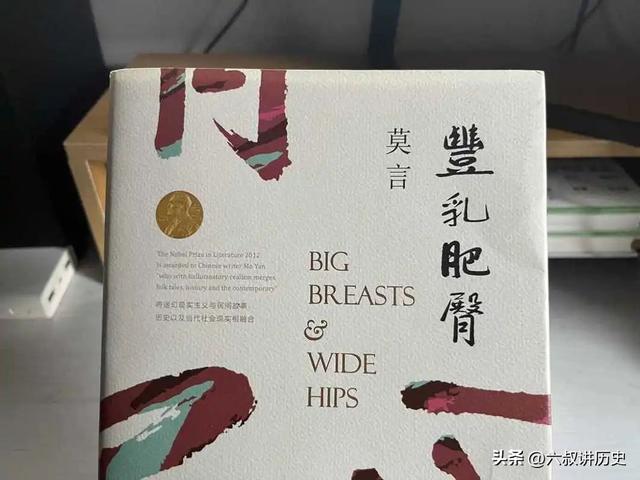动词用法辨析:

(1)“Why not 动词原形 …?”(干嘛不……?) 是简略句,完全形式是:Why don’t you 动词原形 …?
如:Why not go and have a look?(干嘛不去看看?)
Why not try it once again?(为什么不再试试?)
(2) seem(好像)的用法:记住几个结构:
①sb./sth. seem (to be )形容词 …;
②sb./sth. seem like …;
① sb/sth seem to (do);
② It seems that 从句。
如:He seemed (to be) very happy when he was called by the headmaster. (被校长叫到名字时他好象很开心)
It seems that nobody else could do such a foolish thing except Jim.
(除了吉姆好象没有什么人会做出如此愚蠢的事情来)
(3) be afraid(害怕)的用法:记住几个结构:
①be afraid of sth; be afraid of (doing);
②be afraid to (do);
③be afraid that 从句。
如:She is a little afraid of snakes.(她有点怕蛇)
Don’t be so afraid to stay at home alone at night.(别害怕晚上一个人在家)
I’m afraid that somebody will take his place because of his serious mistakes.
(恐怕有人要取代他了,因为他犯了那么大的错误)
(4) be sorry(抱歉)的用法:记住几个结构:
① be sorry for (sth);
② be sorry for (doing sth);
③ be sorry to (do);
④ be sorry that 从句。
如:I am very sorry for keeping you waiting so long.(不好意思让你久等了)
I am sorry to trouble you.(对不起,麻烦你了)
I am sorry (that) he isn’t here at the moment.(恐怕他现在不在)
(5) be sure (确信)的用法:记住几个结构:
① be sure of (sth);
② be sure to(do);
③ be sure that 从句。
如:She told me many times that she was sure to come.(她给我讲过多次她一定会来的)
Are you sure of your answer? Maybe it’s wrong.(你对你的答案有把握吗?也许是错的。)
I am sure that Dad will help me with the job.(我确信爸爸会帮着我做这件事情的)
(6) make 与do的用法:一般情况下表示进行活动或者做工作用do,表示创造建构某事物用make.
如:I don’t know what to do.(我不知道该干什么)
I’m not going to do any work.(我不准备做什么)
My father and I once made a boat.(我和我爸曾经做过一只船)
此外还要记住一些固定说法:
do good / harm / business / one’s best / a favour……
make a decision / an effort / a mistake / a noise / a phone call / money / war / the bed / sure,...
(7) put on、wear、have…on、be in、try on、dress的用法:
put on强调“穿、戴”这个动作过程,
wear则表示“穿着、戴着”这一状态,
have 衣物 on主要表示状态,
be in( 颜色/衣物)也是表示一个状况,
dress( 人)表示“给…人穿衣”。
如:Please put on your new shoes.(请穿上你的新鞋)
The twins are wearing the same clothes.(双胞胎穿着相同的衣服)
Today she has an overcoat on.(今天她穿着一件大衣)
Do you know the woman who is in black?(你认识那个身穿黑衣的女人吗?)
Dad is dressing Tom now.(爹正在给汤姆穿衣)
[注意]dress与wear或put on的区别:
wear或put on常用衣物作宾语,而dress常用人作宾语。
表示给自己穿衣时常用“get dressed”或“dress oneself”表达。
be dressed in与wear基本同义。
dress up意为“穿上盛装、乔装打扮”。
如:Could you dress the baby for me?(你能替我给宝宝穿衣吗?)
He is eight but can’t dress himself.(他八岁了,还不会穿衣服)
She was dressed in a red coat.(她穿着一件红上衣)
Do I have to dress up to go to Jim’s party?(我得穿上好衣服去参加吉姆的聚会吗?)
(8) like、love与enjoy的用法:三个词都含有“喜欢”的意思,但是,like和enjoy后面跟动名词,love 后面一般跟动词不定式。
like后面有时跟动词不定式,表示一种习惯或嗜好(往往与具体的时间或地点有关)。
enjoy后面还可以加名词、反身代词,表示“享受…乐趣;玩得开心”。
如:Do you like shopping?(你喜欢购物吗?)
He likes to have a swim when he gets home every afternoon.(每天下午放学后他总爱游个泳)
They love to sing foreign songs.(他们喜爱唱外国歌曲)
Did you enjoy yourself at the party?(在聚会上你玩得开心吗?)
He enjoys living in China.(他喜欢在中国生活)
(9) study、learn的用法:
study主要表示“学习、研究”,指过程;
learn主要表示“学会”,指结果。表示“学”时可以互换。
如:How many subjects do you study?(你学多少门课程?)
Have you learned it yet?(这个你学过了吗?)
How long have you studied/learned English?(你学英语多久了?)
learn还可以表示“听说”
如:He learned the musician himself was in town.(他听说音乐家本人就在城里)
(10) think、want、would like的用法:三个词都含有“想”的意思
think指“思考、考虑”
want指“想要、愿望、企图”
would like指“想要”
think后面一般跟介词短语或从句,want和would like后面跟名词或动词不定式。
如:Do you think that China will become a developed country in 40 years?
(你认为中国会在40年后成为发达国家吗?)
I am thinking of the money I once lent to Li Min.((我正在想着以前借给黎敏的钱)
What do you really want to say?(你到底想干什么?)
Which of these cakes would you like (to have)?(这些饼子中你想吃哪些?)
(11) look for、search…for、find、find out的用法:前面两个词语表示动作过程,后面两个表示结果
look for指“寻找”不见的或丢失的东西,但还没有找到;
search…for…指“为找…而搜寻…”;
find指“找到”了东西;
find out主要指“查明一个事实真相”。
如:Hey, Monkey, what are you looking for in the cupboard?(嘿,猴儿!你在厨子里面找什么呢?)
Have you found the lost key to your car?(你找着丢失的车钥匙了吗?)
The soldiers were searching the room for the spy when they heard a loud noise.
(士兵们正在房间里面搜寻间谍突然间他们听到了以声巨响)
Let’s try to find out who broke the window.(让我们查查谁把窗子打破了)
[注解] find的几个结构:
find sb. sth“为某人找到…”,
find sth./sb. adj./n.“发觉某人是…”,
find it adj. to do…(或 宾语从句)“发现(做……)如何”。
如: His mother found her daughter a very clever girl.
(他的母亲发现她的女儿是个聪明的女孩) (名词作补语补足语)
You can easily find it not good for your health to eat cold food.
(你很容易就会发现吃冷食对你的身体是不利的)
(12) listen to、hear的用法:两个词与听觉有关,
listen to指“听”这一过程,
hear指“听到”这一结果。
如:Are you listening to me, Jim? Yes, I have heard your words.
(吉姆,你在听我说吗?是的,你的话我全听见了)
,




